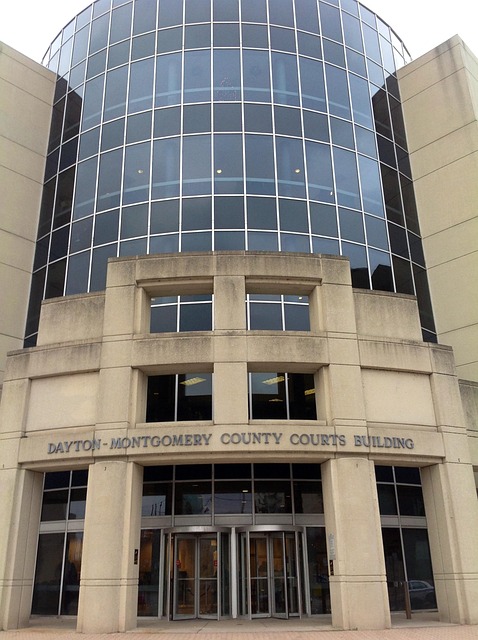The Understanding Burden of Proof in Criminal Cases is paramount for fair trials, preventing wrongful convictions by demanding prosecutors prove guilt "beyond a reasonable doubt". This process begins with investigations gathering physical and digital evidence, interviews, and observations. Prosecutors then decide whether to charge, with cases proceeding to jury trials where citizens determine guilt or innocence based on presented facts. Effective defense strategies can challenge admissibility, testimonies, and procedural errors. In today's complex criminal landscape, the Understanding Burden of Proof faces challenges from societal shifts, requiring legal professionals to navigate evolving norms while maintaining justice system integrity.
“Delve into the intricate world of criminal law enforcement, where justice and due process intertwine. This article offers a comprehensive exploration of the foundational principles that underpin this complex legal domain. From the basic concepts of criminal law to the intricate processes of case management, we unravel the key components crucial for effective prosecution and investigation. Furthermore, we dissect the pivotal role of evidence and the profound implications of the burden of proof in shaping criminal proceedings. Prepare to navigate through contemporary challenges and controversies that continue to shape—and sometimes shake—the foundations of modern criminal law enforcement.”
- The Foundation of Criminal Law: Understanding the Basic Principles
- Key Components of a Criminal Case: From Investigation to Prosecution
- The Role of Evidence and the Burden of Proof in Criminal Proceedings
- Challenges and Controversies: Modern Issues in Criminal Law Enforcement
The Foundation of Criminal Law: Understanding the Basic Principles

The foundation of criminal law is built upon a series of fundamental principles that guide the process of prosecution and justice. At its core, understanding the burden of proof in criminal cases is paramount. This principle dictates that the prosecution must present compelling evidence to establish guilt beyond a reasonable doubt. The concept ensures that individuals are not convicted based on mere speculation or circumstantial evidence but on solid, irrefutable facts.
The application of this rule across the country has significant implications for both the philanthropic and political communities. A robust understanding of the burden of proof fosters trust in the legal system, as it safeguards against wrongful convictions and ensures that justice is not only served but also perceived as such by all segments of society. This fundamental principle remains a cornerstone in navigating the complex landscape of criminal law enforcement.
Key Components of a Criminal Case: From Investigation to Prosecution

In any criminal case, a structured process guides investigators and prosecutors through the complexities of legal proceedings. The journey begins with a thorough investigation to gather evidence, ensuring the understanding burden of proof in criminal cases. This crucial step is vital for establishing the facts of the crime and differentiating between innocent and culpable parties. Law enforcement officers play a pivotal role in this phase, meticulously collecting physical evidence, conducting interviews, and documenting observations to build a robust case.
Once the investigation concludes, the gathered evidence is presented to a prosecutor who decides whether to file charges. This decision-making process involves a delicate balance between pursuing justice and respecting the rights of the accused. If the prosecutor finds sufficient evidence to support the charges, the case progresses to jury trials, where a group of citizens deliberates on the guilt or innocence of the defendant based on the presented facts and arguments from both sides. Effective general criminal defense strategies can help avoid indictment by challenging the admissibility of evidence, questioning witness testimonies, and exploiting procedural errors during the investigation and prosecution phases.
The Role of Evidence and the Burden of Proof in Criminal Proceedings

In criminal law enforcement, understanding the role of evidence and the burden of proof is paramount. The Burden of Proof in Criminal Cases refers to the legal requirement for prosecutors to convince a jury or judge of a defendant’s guilt beyond a reasonable doubt. This standard, often referred to as “beyond a reasonable doubt,” is a cornerstone of fair trial practices, ensuring that individuals are not convicted on flimsy evidence. It protects against wrongfully accusing and convicting innocent people.
Evidence plays a pivotal role in criminal proceedings. It can include physical, digital, forensic, or witness testimonies. However, for this evidence to be admissible, it must meet certain legal standards. Prosecutors bear the burden not only of presenting relevant evidence but also of ensuring its reliability and authenticity. In cases involving white-collar and economic crimes, where investigations are complex, avoiding indictment requires meticulous documentation and a clear chain of custody for all evidence. Jury trials, as a result, often hinge on the thorough examination of such evidence, ultimately guiding the jury’s decision in meeting the strict burden of proof.
Challenges and Controversies: Modern Issues in Criminal Law Enforcement

The modern landscape of criminal law enforcement faces a myriad of challenges and controversies that have evolved with societal shifts. One of the most significant issues is the ongoing debate surrounding the understanding of the burden of proof in criminal cases. The concept, though fundamental to ensuring justice, has been a point of contention, especially with complex legal interpretations and public perception. The traditional standard requires prosecutors to prove guilt beyond a reasonable doubt, but this can be intricate in today’s legal arena.
Defenders often argue for a more robust general criminal defense strategy, emphasizing the need for a complete dismissal of all charges where reasonable doubts exist. This debate intensifies with changing public expectations and media portrayal of justice. As a result, law enforcement agencies and legal professionals must navigate these modern issues, ensuring fairness while addressing the challenges posed by evolving societal norms and the ever-present need to uphold the integrity of the criminal justice system.
Criminal law enforcement is a complex and ever-evolving field that requires a deep understanding of foundational principles, key case components, and evidence handling. By grasping these essential elements, including the critical role of the burden of proof, we can navigate modern challenges and ensure fair and effective justice. This article has provided a comprehensive overview, highlighting the complexities and controversies within criminal law enforcement, ultimately emphasizing the need for informed public discourse and adaptive legal practices.






